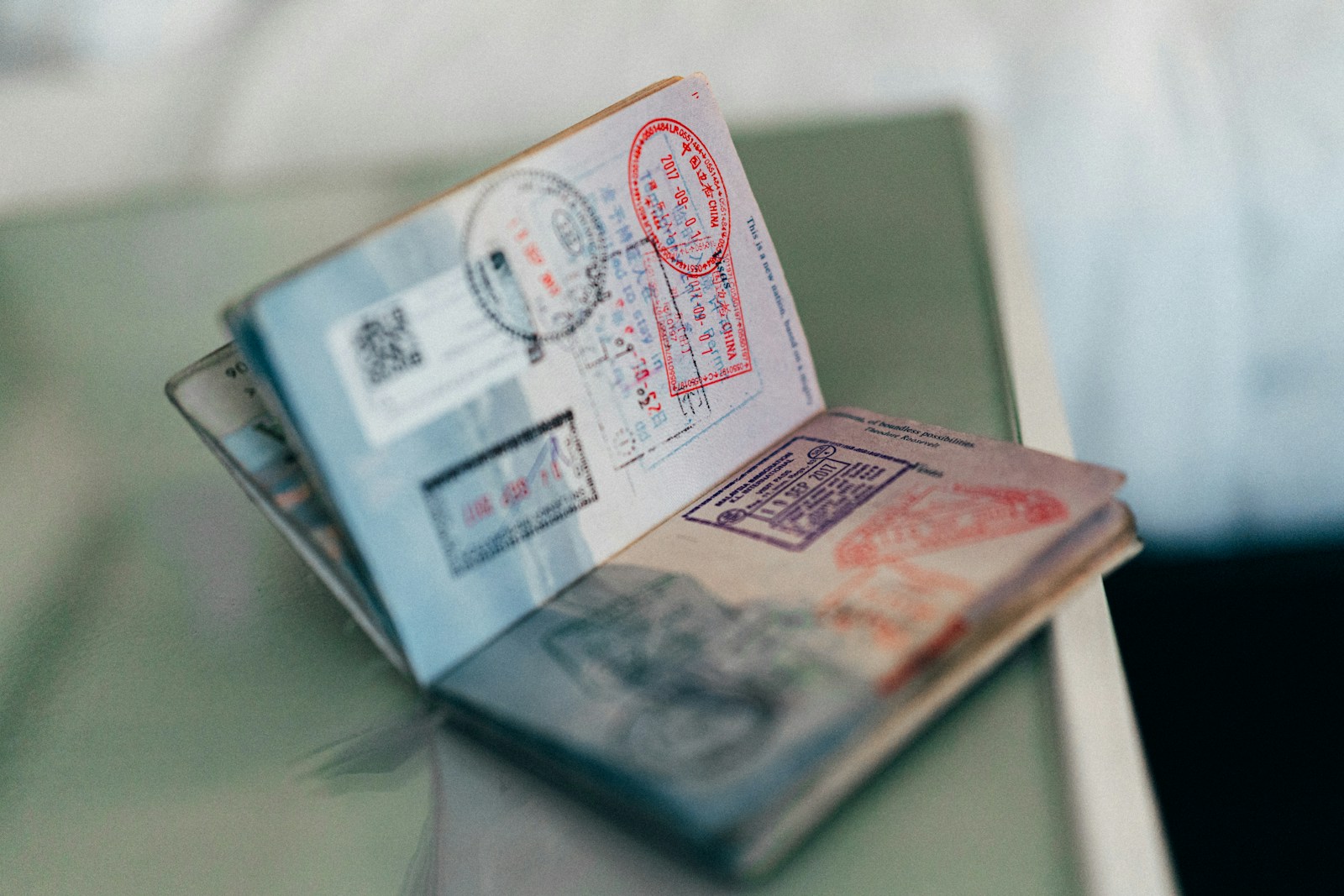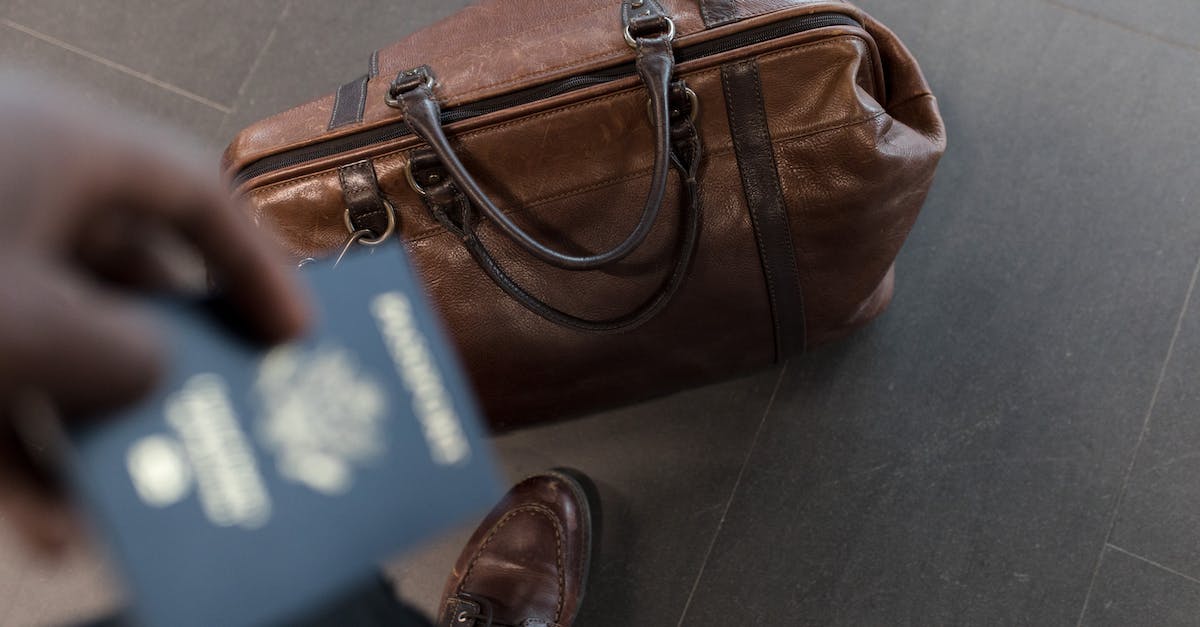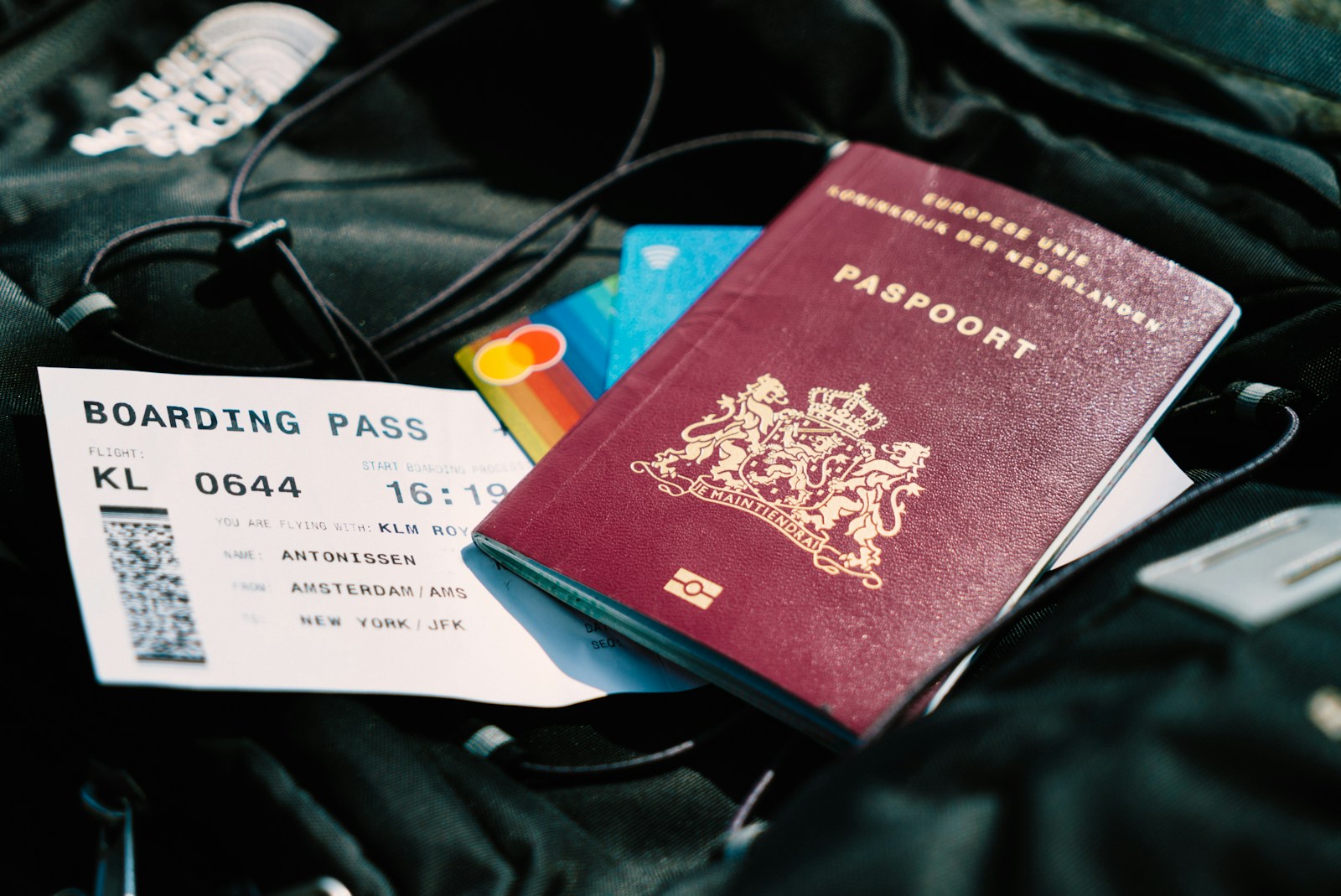As a frequent traveler, you’re no stranger to the trials and tribulations of passport renewal. It’s a necessary evil, but with the right tips and tricks, it doesn’t have to be a headache.
In this article, we’ll explore the top 10 passport renewal tips that’ll make your life easier. Whether you’re a seasoned globetrotter or planning your first big trip, these tips will help you navigate the process like a pro.
So, let’s dive in and get you ready for your next adventure. Because the world waits for no one, and certainly not for a passport renewal.
Tip 1: Start Early

Starting early is not only proactive, but it’s also crucial when it comes to passport renewal. Do you know the expiration date of your passport? It’s not something you typically keep in mind. But that tiny date printed on the back page becomes extremely important when you’re about to embark on a vacation or a business trip. Impromptu travel plans may put you in unnecessary trouble if you’re caught off guard with a passport that is about to expire.
Typically, countries require that your passport should be valid for at least six months beyond the date you enter their territory. That means you can’t wait until your passport is nearly expired to start the renewal process. If your passport has less than a year until it expires, it’s time to commence preparations for renewal.
Try to mark your calendar six months ahead of the expiration date. You might want to set a reminder a year in advance, which will provide ample time to gather all necessary documents, get your passport photos taken, and complete the renewal form.
After completing your renewal application, it can take weeks, sometimes even months, to receive your new passport. That’s unless you’ve paid for expedited service, which can quickly rack up extra costs. The expedited service guarantees a turnaround within few weeks but having a buffer time is always better.
In essence, starting early for a passport renewal isn’t merely a convenience, it’s a necessity. This first tip sets the foundation for a smooth passport renewal process. It helps eliminate many potential headaches related to expired documents, last-minute renewals, or being stranded in a foreign country with an invalid passport.
After all, time waits for no one, and neither does the passport renewal process. So, make it a priority to start your renewal process as early as possible. Be proactive, and you’ll protect not only your time but also your peace of mind.
Tip 2: Check Passport Expiry Date

Frequent travelers take note: always keep tabs on your passport expiration date. This is not a mere suggestion or a piece of advice that you can shrug off. Rather it’s a fundamental aspect of your travel planning. Other than allowing entry, your passport should also meet certain longevity requirements of the destination countries.
Do you know many places around the globe demand your passport to be valid for at least six months beyond your planned departure date from their country? That’s right; this often overlooked criterion can mean the difference between a memorable vacation and a stressful embassy visit abroad. Imagine flying halfway across the world only to be sent back because your passport does not have the requisite validity.
So how can you avoid this predicament? With a bit of foresight and planning it can be easily avoided. Invest in a well-placed reminder in your calendar to check the expiration date of your passport every six months.
Let’s bring this advice to life with a little scenario. Suppose you plan on a year-end trip in December and today is January 1. Now while your passport expiry might be in July of the same year technically your passport is unfit for this trip even though it’s still valid for several months. Thus ensuring that your passport has adequate validity is just as necessary as having a renewed passport.
Remember, the renewal process of your passport can also take a considerable amount of time especially if you don’t opt for an expedited service. Therefore don’t let this minor detail – that many of us are wont to forget – become a major hindrance in your travel plans. By proactively staying informed of your passport’s expiration you’ll ensure a smoother and more enjoyable journey.
Tip 3: Review Passport Renewal Requirements
In maintaining an up-to-date passport, it’s essential to familiarize yourself with the renewal requirements. Governments frequently change their policies to cope with security concerns and other matters. Staying informed about these changes can help you avoid nasty surprises that could disrupt your travel plans.
Most countries, including the US, require a passport application form for renewal, recent passport photos, your most recent passport, and payment. However, additional requirements could be applicable, depending on your situation. If your passport’s been lost, damaged, or stolen, you’ll likely need to provide additional documentation such as a police report or a statutory declaration.
Make sure to review the passport application form’s particulars before starting the renewal process. Check the box for identifying details and any additional information the government may require. You might also find it helpful to create a checklist for your passport renewal. This could include the following steps:
- Gather necessary documents
- Take passport photos
- Complete the passport application form
- Pay the passport renewal fee
Staying ahead with a checklist provides you with a tangible tool to ensure the process goes smoothly.
There’s also the matter of fees, which can vary drastically. The US passport renewal fee, for example, is currently set at $110 for an adult passport book. But this fee may increase depending on additional services you may require such as expedited processing or adding passport pages. The table below provides a basic breakdown of US passport fees.
| Service | Fee |
|---|---|
| Passport Book | $110 |
| Passport Card | $30 |
| Expedited Service | $60 |
| File Search Fee | $150 |
Remember, these fees are subject to change, so it’s a good idea to consistently review the current rates on your government’s official website. Stay proactive and organized to make your passport renewal a stress-free endeavor.
Tip 4: Gather the Necessary Documents
No one wants to be that person scrambling at the last minute to find their birth certificate or old passport. Start early and gather all the necessary documents you’ll need for your passport renewal.
First off, you need your old passport. This acts as both your identification and proof of US citizenship. If your passport is damaged or lost, you’ll need additional documents to establish your identity and citizenship. In most cases, a certified copy of your birth certificate and a state-issued identification like a driver’s license will be sufficient.
Next, passport photos are a must. You’ll need to submit a recent passport-style photo. Keep in mind it’s got to meet specific government standards. So while you might think your last vacation photo is picture-perfect, it probably won’t make it past the photo guidelines.
Some agencies and pharmacies offer passport photo services. They’ll have the specifications down to a science, so it’s an easy way to ensure your photo gets approved.
Proof of travel plans is another requirement if you’re applying for expedited service. This could be a flight itinerary, hotel reservation, or any document showing immediate travel plans.
Lastly, you need to pay the passport renewal fees. The cost can vary, so review the current rates on the official government website.
Let’s summarize what you’ll need:
- Your old passport
- A recent, regulation compliant passport photo
- Proof of travel plans (if applying for expedited service)
- Passport renewal fees
Have these documents on hand before you start filling out the renewal form. You’ll save yourself time and avoid potential hitches in the application process. So, get ahead of the game. Gather your documents, and you’ll be packing for your next adventure in no time.
Tip 5: Take Accurate Passport Photos
Your passport photo matters more than you’d think. It’s the most visible part of your passport and can either accelerate or delay the renewal process. A photo that deviates from the strict criteria can be rejected and delay your renewal process.
When taking your passport photo, bear in mind that you must have a neutral facial expression. Smiling broadly or frowning can cause your picture to be denied. Your face must be entirely visible and your eyes open. If you wear glasses, it’s highly advised to remove them for the photo to avoid pesky reflections and glares.
Ensuring that you adhere to the photo size standards is essential. In the U.S, the standard size is 2 by 2 inches. If your photo doesn’t conform to the specified dimensions or is taken farther away than the rules stipulate, it will be rejected. Remember, your photo should have been taken within the last six months. Old photos, even if they’re less than a year, won’t cut it.
Invest in getting your passport photo taken professionally instead of taking a quick selfie. It might feel like an unnecessary expense, but professional photos are less likely to be rejected. Some countries even demand a professional photograph. However, if you’re taking the photo yourself, make sure you use a high-resolution camera with good lighting.
You might be puzzled about why such importance is placed on a simple passport photo. Beyond identification, your passport photo serves as a means of verifying your identity in instances of identity theft, lost passports, or during your travels.
We also have to consider the application process. If your photo is rejected, it throws a wrench in your renewal procedure, it can extend the process by weeks or even months. Armed with the right knowledge, you can expedite the renewal procedure smoothly.
Moving on, let’s further delve into the next best tip to efficiently execute your passport renewal process.
Tip 6: Complete the Passport Renewal Application
As a frequent traveler, you’re accustomed to filling out forms. Forms for visa applications, hotel check-ins, and flight bookings don’t faze you. Yet, the passport renewal application deserves special attention. This form, also known as DS-82, is not only a requirement but a crucial step towards seamless passport renewal.
You might know DS-82 form as “U.S. Passport Renewal Application for Eligible Individuals”. Before you start filling it out, make sure you are in a distraction-free environment; giving the form your complete, undivided attention is paramount. Remember, your accuracy here directly impacts the process success.
When filling out DS-82, exercise extreme precision. No overwriting, scratching, or missed fields are allowed as it can lead to application rejection. Also, whether online or offline, always double-check the information before submitting. The slightest error in your renewal form potentially disrupts the entire renewal process.
Though handling government forms can be tedious, there’s no need to dread it. The DS-82 form, at its core, is straightforward. It queries your personal details like Name, Date of Birth, Place of Birth, and Contact Information. It also asks for your current passport information and emanating details about the emergency contact.
While working through DS-82, make sure you have all the required documents at hand. These may include your current passport, necessary identification, and proof of name changes (if applicable). In addition, you’ll need to attach one recent passport photo with the form. These documents collectively make your passport renewal a go.
Tip 7: Pay the Passport Renewal Fee
All your efforts and diligence in the passport renewal process will come to naught if you overlook one essential step – paying the passport renewal fee. Every renewal application requires an associated fee. Remember, this cost directly funds the administrative and operational costs for the passport office.
While renewing your passport, note the fee varies depending on the type of renewal. There are specific costs associated with age (for minors and adults), urgency (standard or expedited processing), and other factors. The chart below shows the comparison between different types of passport renewal fees.
| Type |
Fee
| ——————— |
| Standard Adult Renewal|
$110
| Standard Minor Renewal|
$80
| Expedited Adult Renewal |
$170
| Expedited Minor Renewal |
$140
It’s essential that you review the current fee schedule on the government’s official website before proceeding with your renewal. You wouldn’t want to face issues or delays in your renewal process due to an insufficient payment.
Although this cost may seem a bit steep, consider it necessary for ensuring your ability to travel freely. When you think about the adventures, experiences, and wealth of memories that come with the full passport you hold, it becomes apparent. The fee is a small price to pay in exchange for a world of travel opportunities.
There are a variety of ways to pay the passport renewal fee. Traditional payment methods, such as checks or money orders, are acceptable. Alternatively, you can use digital payment options, such as credit or debit cards, for convenience. But read the requirements carefully. It’s worthwhile to double-check every detail and avoid any payment-related issues with your renewal application.
Last, if you opt for mail-in renewal, don’t forget to enclose the payment along with your other documents. It’s easily overlooked, but hold-ups due to forgotten payments are surprisingly common.
Tip 8: Choose Expedited Processing Option
In the realm of passport renewals, time is a critical factor. Don’t underestimate the time it takes for standard processing. Being a frequent traveler, you’re well aware of how the unpredictability of travel can throw a wrench in your plans. It’s here that an expedited processing option can be a game changer.
Take advantage of expedited processing if you need your passport renewed quickly. This option reduces the processing time significantly compared to standard renewal. However, note that it’s typically associated with an additional charge, a cost many frequent travelers find worthwhile.
Expedited processing usually takes around four to six weeks, a drastic reduction from the typical six to eight weeks of standard processing. Life-or-death emergency or immediate travel, on the other hand, can push this even further to a mere 72 hours.
Below is a comparison of processing times and associated fees to guide you:
| Type of Service | Processing Time | Additional Cost |
|---|---|---|
| Standard | 6-8 weeks | $0 |
| Expedited | 4-6 weeks | $60 |
| Life-or-Death | 72 hours | $60 |
Information sourced from the official U.S. Department of State. Prices and timings are subject to change. Always refer to the official website for the most current information.
But remember, opting for expedited processing doesn’t exempt you from the standard requirements. This means you’ll still need those perfect photocopies, to fill out the DS-82 form meticulously, and ensure that your payment is enclosed in your application. Twiddling thumbs won’t speed up the process, but ensuring accuracy and completeness in your application will certainly keep it from slowing down.
In essence, for a frequent traveler who values time and certitude, the extra cost for expedited processing might just be worth every cent. Providing you peace of mind and added flexibility, it puts you back in control of your travel schedule. It pays to be prepared, and this is one step further in your preparation.
Tip 9: Track Your Passport Renewal Status
You’ve done your part. You’ve filled out your DS-82 form accurately, taken that perfect passport photo, and paid your fees. Now, it’s time to brace for the waiting game. While it can be nerve-wracking, tracking your passport renewal status is one way to keep your anxieties at bay. It is important for frequent travelers like you, who need to plan their travels accordingly.
The U.S Department of State provides an online service to check your application status. To access it, you’ll need the last name you used on your application form, complete with any suffixes or hyphens, your date of birth, and the last four digits of your social security number. From this platform, you’ll be able to monitor your application’s progress and get an idea of when you’ll receive your new passport.
The tracking service updates every 24 hours. So you don’t need to check it every hour or so. Daily or even weekly checks should, generally, be enough.
Remember, expedited processing doesn’t mean your passport will pop up in your mailbox in a couple of days. It’ll still take a few business weeks, so patience is key. Plan your travel dates wisely and do not book non-refundable travel unless you’re confident you’ll have your passport in time.
If for some reason, there are issues that arise during the application process, this online tracking service will help you address them promptly. It can also alert you to any actions needed on your part, so you don’t miss out on any important updates that may require your attention.
Remember, proactive tracking of your passport renewal status can save you stress and prevent any last-minute hiccups. Make the online service your ally in ensuring a seamless passport renewal experience.
Tip 10: Plan Your Travel Accordingly
It’s easy to underestimate the importance of adequately planning your travels. You’ve probably experienced the stress of last-minute packing or arranging your itinerary while on the way to the airport. But when it comes to passport renewals, planning carries even more significance. Timely passport renewal is essential, and usually, it should be done several months before planned international travel. Why is this important?
Delayed passport renewals have the potential to turn your travel plans upside down. It might be due to varying processing times or unexpected issues that can arise during the application process.
By planning, you ensure sufficient buffer for the passport renewal process. This means you’re securing your travel plans without hinging them on the hope of a speedy passport delivery. Ideally, you should start the process about nine months before your passport’s expiration date. It might seem to be excessively early, but it’s better to be safe than sorry. Don’t let an expired or about-to-expire passport be the reason you miss out on your travel.
Notwithstanding, we understand that sometimes life happens. For those sudden travel needs, the expedited passport renewal process is your best bet. Even in these instances, don’t forget to factor in the extra fees associated with the expedited process.
Use the U.S. Department of State’s online passport status tracking service to monitor your renewal process. Remember this tool updates every 24 hours. Stay informed of the situation and make necessary adjustments to your plans if need be.
Control what you can when planning your travels. Take charge of your passport renewal by starting early and keeping abreast of its status. Allow for enough time for the process – this way you retain the peace of mind that comes with knowing you’re all set for your upcoming adventures. Planning accordingly will not only make your life easier but also ensure that your travel plans go off without a hitch. Now, isn’t that a goal you can get on board with?
Conclusion
You’ve now got the knowledge to navigate the passport renewal process like a pro. Remember, it’s all about starting early and keeping an eagle eye on your passport’s expiration date. Don’t underestimate the importance of a good, accurate passport photo and filling out the DS-82 form with precision.
Always have your required documents at hand and consider expedited processing if you’re in a hurry. But remember, speed doesn’t mean you can skip the rules. Plan your travels with enough leeway for the renewal process and use the U.S. Department of State’s online service to keep track of your application’s progress.
By being proactive and diligent, you can ensure a smooth passport renewal experience. Safe travels!
Frequently Asked Questions
When should I start the passport renewal process?
It’s recommended to start the passport renewal process several months before your planned international travel. This gives adequate time for processing and allows for any unforeseen delays.
How often should I check my passport’s expiration date?
Regularly checking your passport’s expiration date is important. Make it a habit to check every few months to ensure it’s valid for your next travel.
How important is accuracy while completing the DS-82 form?
Accuracy is critical when completing the DS-82 form. Mistakes or omissions can cause delays in the renewal process.
What are the documents required for passport renewal?
Standard requirements for passport renewal include your old passport, a completed DS-82 form, a new passport photo, and payment for fees. Further identification documents may be required in some cases.
Can I expedite my passport renewal?
Yes, the option for expedited processing is available for those who need their passport quickly. However, additional fees apply and expedited processing doesn’t exempt you from meeting regular requirements.
What is the online passport status tracking service?
The U.S Department of State offers an online passport status tracking service. It helps you monitor your passport’s renewal process and adjust travel plans accordingly.
Why is proactive tracking important for passport renewal?
Proactive tracking allows you to stay updated about your passport renewal status and manage your travel plans better. It helps avoid possible complications or inconveniences during your international travel.


